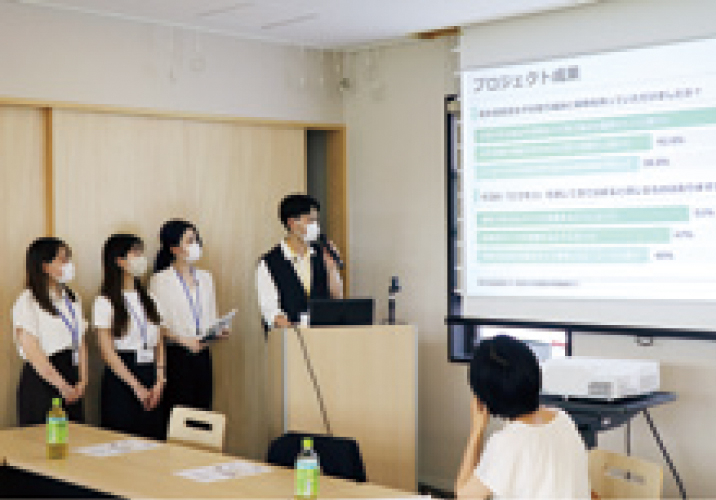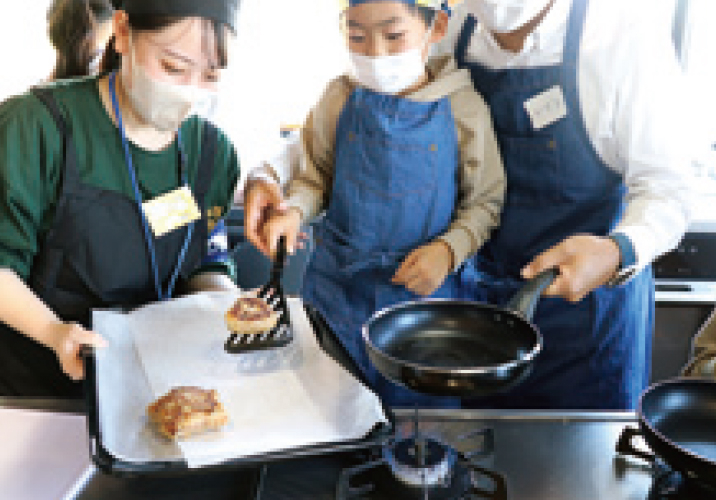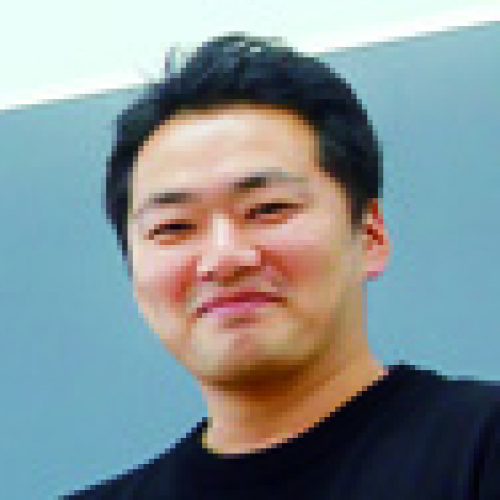About Toyo University Progress:Akira Hachisu Seminar,Department of Business Administration, Faculty of Business Administration
At Toyo University, many students demonstrate their outstanding talents in a wide range of fields, including scholarly and scientific research, sports, and volunteer activities.
We interviewed Hachisu Seminar about the university cafeteria project they are promoting as an industry-government-academia collaboration with the Tochigi Prefectural Government and Tochigi Female Farmers.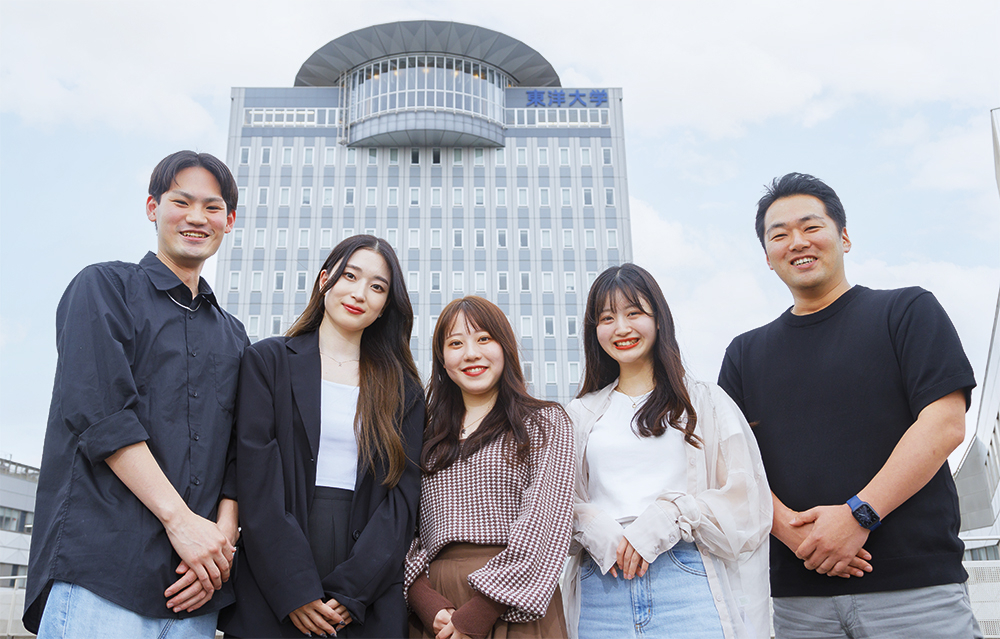
Seminar students (from the left, Ryoto Watanabe, Keina Akamine, Mahiro Oka, Mizuki Tago; all Departments of Business Administration 4th year students) and Associate Prof. Hachisu (far right).
Akira Hachisu Seminar,
Department of Business Administration, Faculty of Business Administration
This is a seminar where students learn through repeated classroom study and hands-on experience, specializing in organizational theory and strategic theory in management. In 2022, Hachisu Seminar sold dishes at the Toyo University cafeteria using products made by female farmers as part of Tochigi Prefecture's effort to promote gender equality.
| We Made Progress on the Project with Proactive Action. |
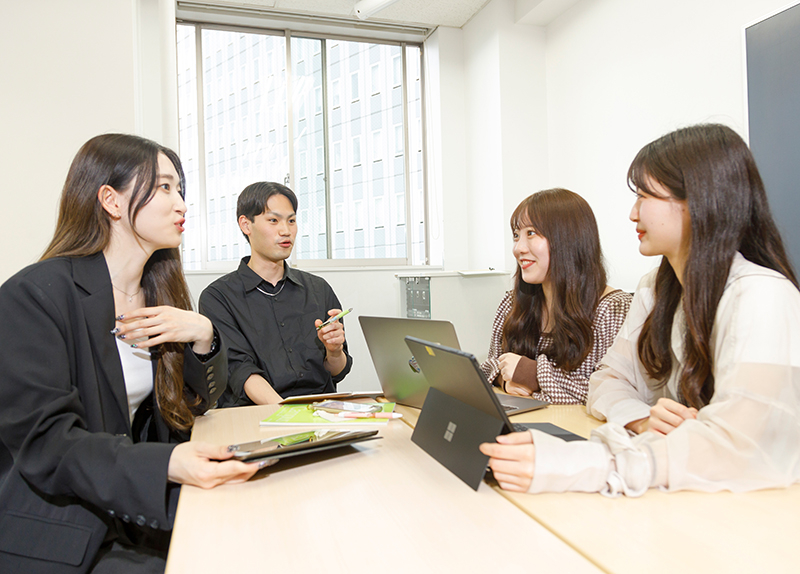
In Hachisu Seminar, we mostly learn theory in the spring semester. Then we apply this theory by separating into several groups and working in cooperation with government agencies and corporations to solve social issues. In our group, we learned that a female farmer in Tochigi Prefecture was struggling with PR and sales promotion, so we launched a cafeteria project in the fall of 2021. At first, we thought we could widely promote Tochigi agriculture, vegetables, and the female farmers if we offered a dish in collaboration with the female farmers at Toyo University’s highly-rated cafeteria. However, there had been cases of unsuccessful collaborations with local universities and university cafeterias in the past, and Associate Prof. Hachisu told us that it wouldn’t be easy. We decided that we needed an opportunity to move the project forward, so we decided to propose a project briefing to the Student Affairs Office and were given a chance to give a presentation. As we gradually made progress with the project, we were given the opportunity to make a presentation to the Tochigi Prefectural Government, and the project started to take shape. It also served as a reminder for us to recognize the importance of taking initiative and acting proactively.
| Building Relationships of Trust with Various Professionals |
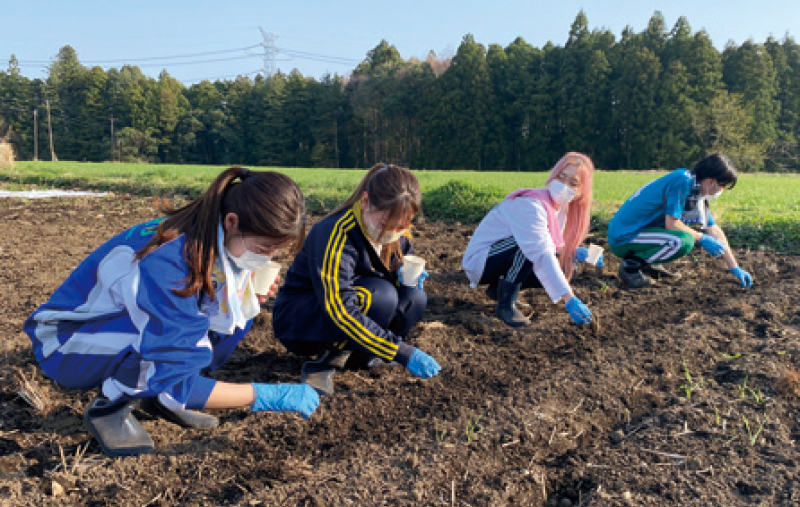
Even though we had launched the project, we were struggling with how to interact with the university and prefectural government staff and the farmers to earn their trust and allow us to take charge, given that we were students. One day, when we presented potential dishes to the Student Affairs Office and the cafeteria operating company, they asked us, “Is that something students want?” We were so focused on the idea of dishes made with Tochigi Prefecture produce that we lost sight of the perspective of the students. So with the help of the registrar, we sent a questionnaire over the Toyo University Official App. The aim was to ask students, their opinion of the cafeteria as a whole and received close to 400 responses. Based on those results, we were allowed to present our ideas for a second time. As we were able to more clearly present its intent and potential, we received positive feedback from both the registrar and the prefectural office. In addition, we repeatedly fine-tuned many aspects we hadn't initially anticipated. Such as whether the dish would burden cafeteria operations, whether the best season for the ingredients would align with the collaboration period, and overall cost calculations. In doing so, we were able to proceed with the project quickly, thanks to support from the university and the prefectural government, and the farmers were pleased with the results. The farmers also let us actually help with the harvest, and we learned that behind each crop are the thoughts of the farmer who grew it. Communicating the thoughts of the farmers to students was an important factor in the project, and we put up POP displays that featured producers’ information in the cafeteria and created websites. As a result, the collaboration dish was a huge success, selling out every day for a week. In November 2022, we held a hands-on workshop where parents could make Loco Moco with their children, and in March 2023, we received the opportunity to present at the Tochigi Forum for Female Farmers. We handed over this project to our juniors, and a second edition project was offered in the cafeteria in June 2023 and also sold out. We came to realize that equal relationships of trust can be established by thoroughly gathering evidence and information and sincerely engaging with the other party, regardless of whether you are a professional or a student.
|
|
|
| We identified our core values by bringing this project to success during the COVID-19 pandemic. |
We spent the majority of our student lives during the COVID-19 pandemic. Although we had concerns that we hadn’t accomplished anything in our university lives, this project took shape with the ideas that we came up with, it brought mutual benefits to those who participated and cooperated, and we were able to bring joy to all those who enjoyed the dish. Through this experience, we learned that hard work pays off and will give us a lot of confidence for the future.
We also got a clear idea of what motivates us and what we will aim for going forward. Furthermore, we experienced firsthand that even a small group of university students can initiate actions that involve many people and create a significant project. It made me realize that while goals like the SDGs sought by modern society may seem daunting at first, they can be achieved if everyone takes small actions.
|
Thoughts From the Academic Advisor
|
Through this project, I feel that the students were able to put into practice what is referred to in business administration as “open innovation*.” It is not always the case that theory is linked to reality. But by putting theory into practice, new issues come to light, and there will come a time to relearn these challenges through theory. This was a wonderful group that leveraged the individual strengths of each member. However, the other groups achieved similar results. I hope that all seminar students, having gained successful experiences in unfamiliar fields, will flourish in society with the confidence of having overcome these projects. *Open Innovation refers to the advancement of innovative business models and reforms by combining ideas, skills, and data from different industries, fields, and sectors, including not only one's own company but also other companies, universities, and government agencies. |
|
| Akira Hachisu, Associate Professor, Department of Business Administration, Faculty of Business Administration |
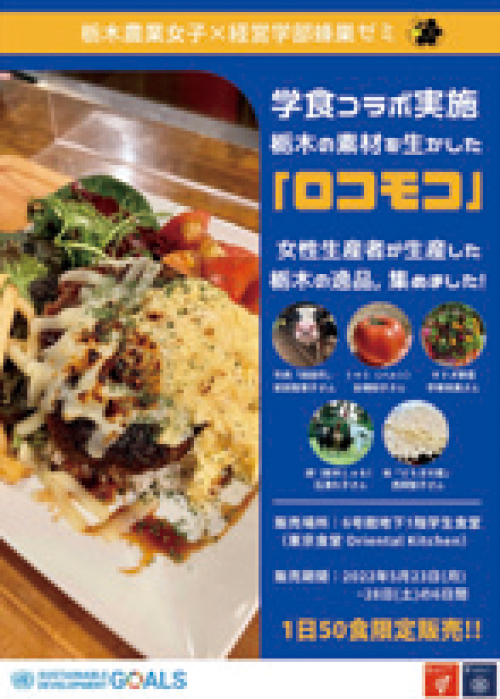 |
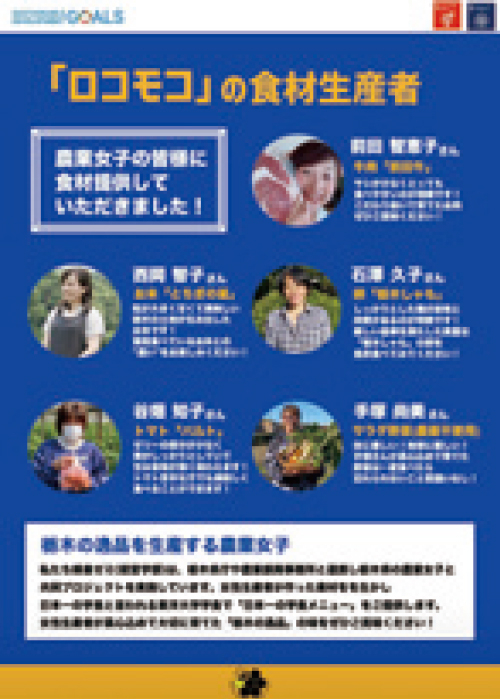 |
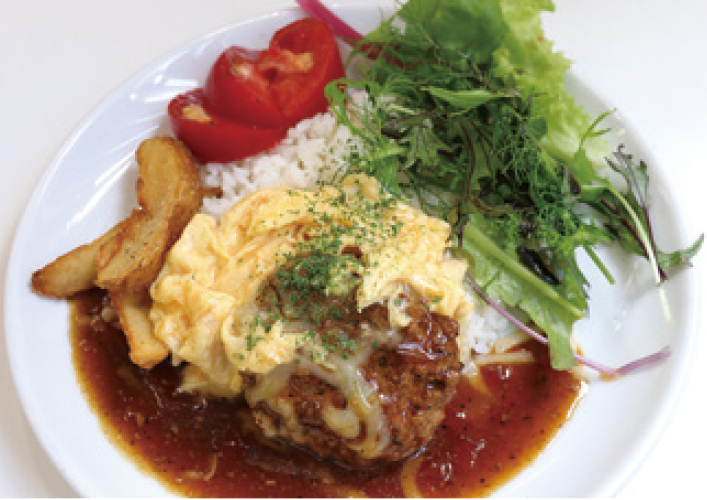 |
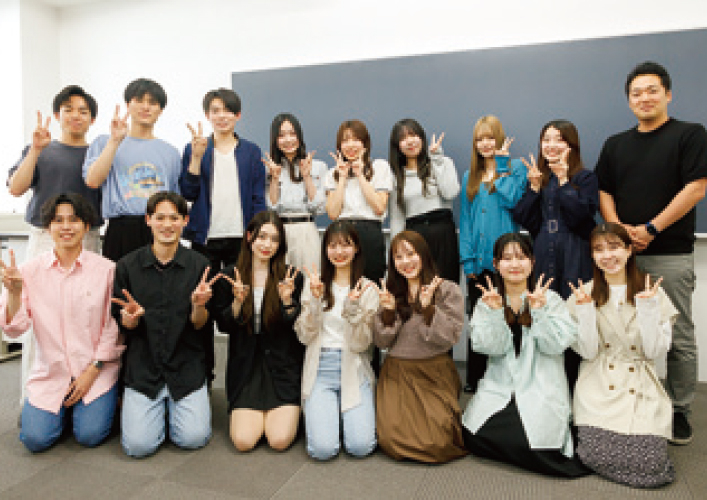 |
| The Poster displayed in the cafeteria | A dish that was developed as a cafeteria project that leveraged industry-government-academia collaboration |
Our Hachisu Seminar is a lively seminar with 44 students from 2nd to 4th year students. |
|
